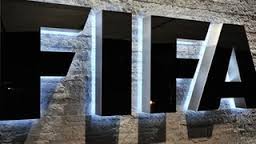By Mark Baber
June 5 – FIFA on Wednesday confirmed the extension to have worldwide effect of the domestic sanctions imposed by the Austrian Football Association (OFB) and the Iran Football Federation (IRIFF) in relation to match manipulation.
The OFB has sanctioned two Austrian players for violating the integrity regulations of the OFB by unlawfully trying to influence the results of a number of matches of the Austrian championship. Dominique Taboga was sanctioned with a lifetime ban from all football-related activities, while Thomas Zundel was banned from all football-related activities for a period of 12 months.
Dominique Taboga had informed the police on 11 November 2013 that he and his family were being blackmailed and threatened by ex-team-mate Sanel Kuljic. However, inconsistencies appeared in his account and he was charged with approaching other players, including Zundel, in an attempt to manipulate matches as well as with embezzlement of €5,000 from the coffers of his club FC Grödig.
In Iran, the Disciplinary Committee of the IRIFF sanctioned Persepolis coach Mohammad Reza Molaei and referee, Mohsen Ghahremani, with bans of six and eight months respectively after being charged with “interference in the corruption” and “unsporting behaviour and illegal relations” respectively.
The two cases were related to a match in the Iran Pro League between Persepolis and Sepahan in which Ghahremani sent off a Persepolis player after 2 minutes and (as video replays showed) wrongly awarded Sepahan a penalty. The refereeing decisions were harshly criticised by Persepolis coach Ali Daei and, despite the referee not being charged with match fixing, did lead to the sanctions by the IRIFF.
In the above cases, the chairman of the FIFA Disciplinary Committee has decided to extend the sanctions to have worldwide effect in accordance with article 78 paragraph 1(c) and article 136ff of the FIFA Disciplinary Code. Ghahremani has, in fact, served his ban and returned to refereeing.
In its press release, FIFA stressed its close collaboration with member associations and the confederations to tackle match manipulation.
According to FIFA, “As part of a ten-year programme of collaboration with INTERPOL, regional workshops involving key stakeholders are being held all over the world while recently launched e-learning programmes are also helping to educate players, coaches and referees on the dangers of match manipulation to help them to avoid becoming victims of this threat to football integrity.”
Other initiatives of FIFA include “the signing of an integrity declaration by officials, the monitoring of the betting market via FIFA’s subsidiary Early Warning System (EWS) and the setting up of an e-learning ethics tool, an integrity hotline and e-mail address and a confidential reporting system.”
Contact the writer of this story at moc.l1735002715labto1735002715ofdlr1735002715owedi1735002715sni@r1735002715ebab.1735002715kram1735002715

